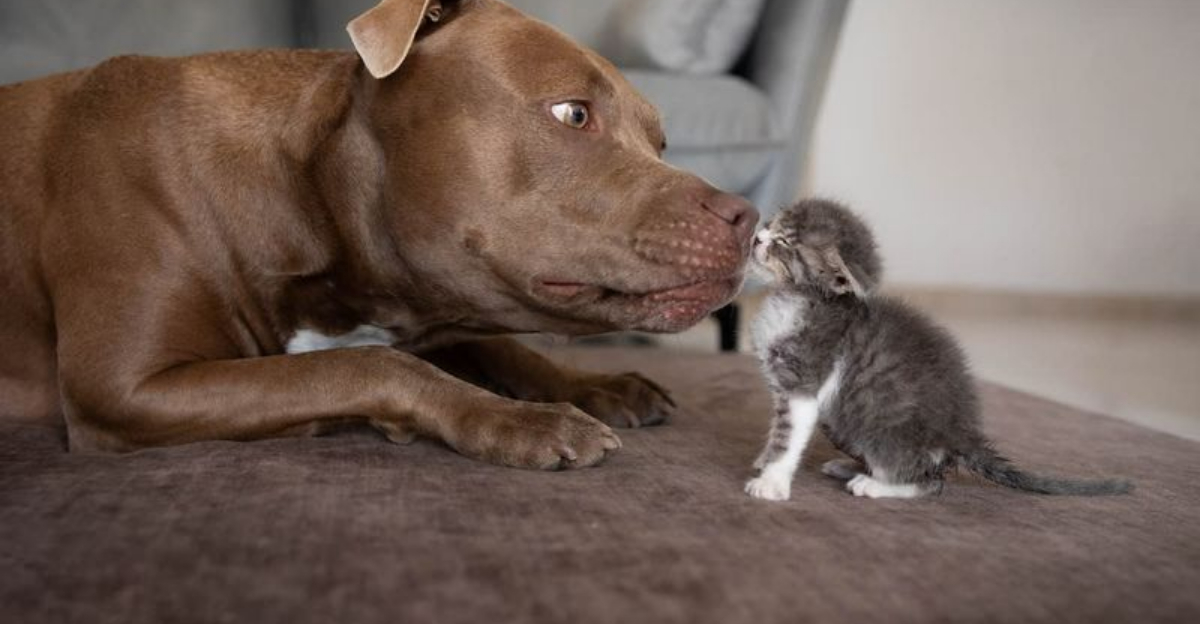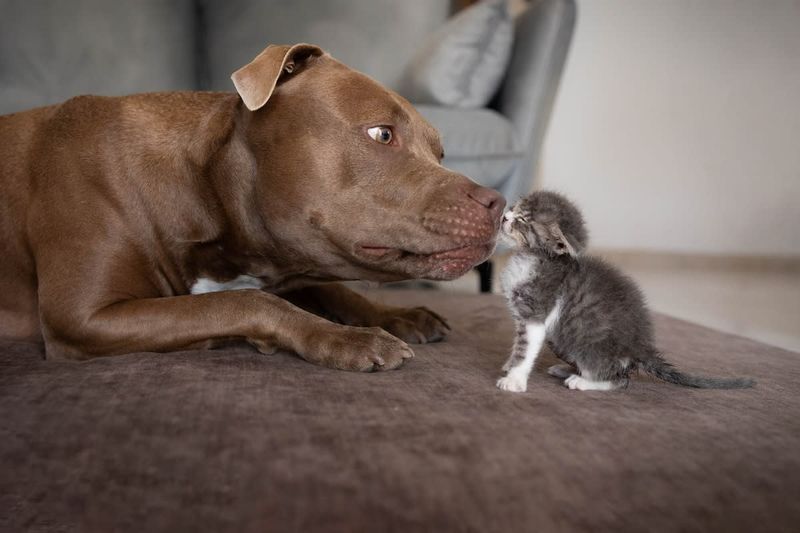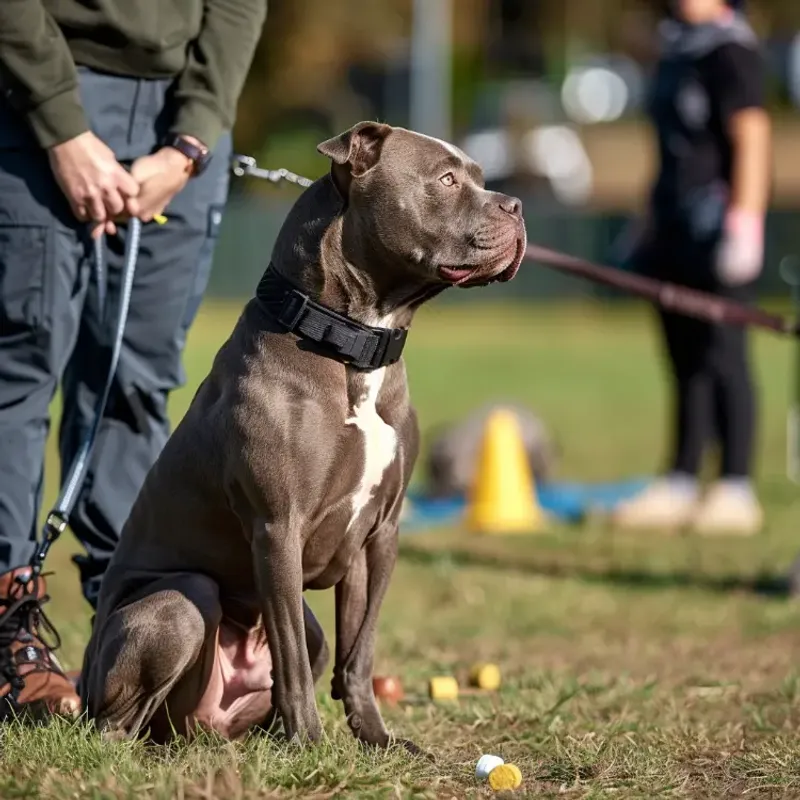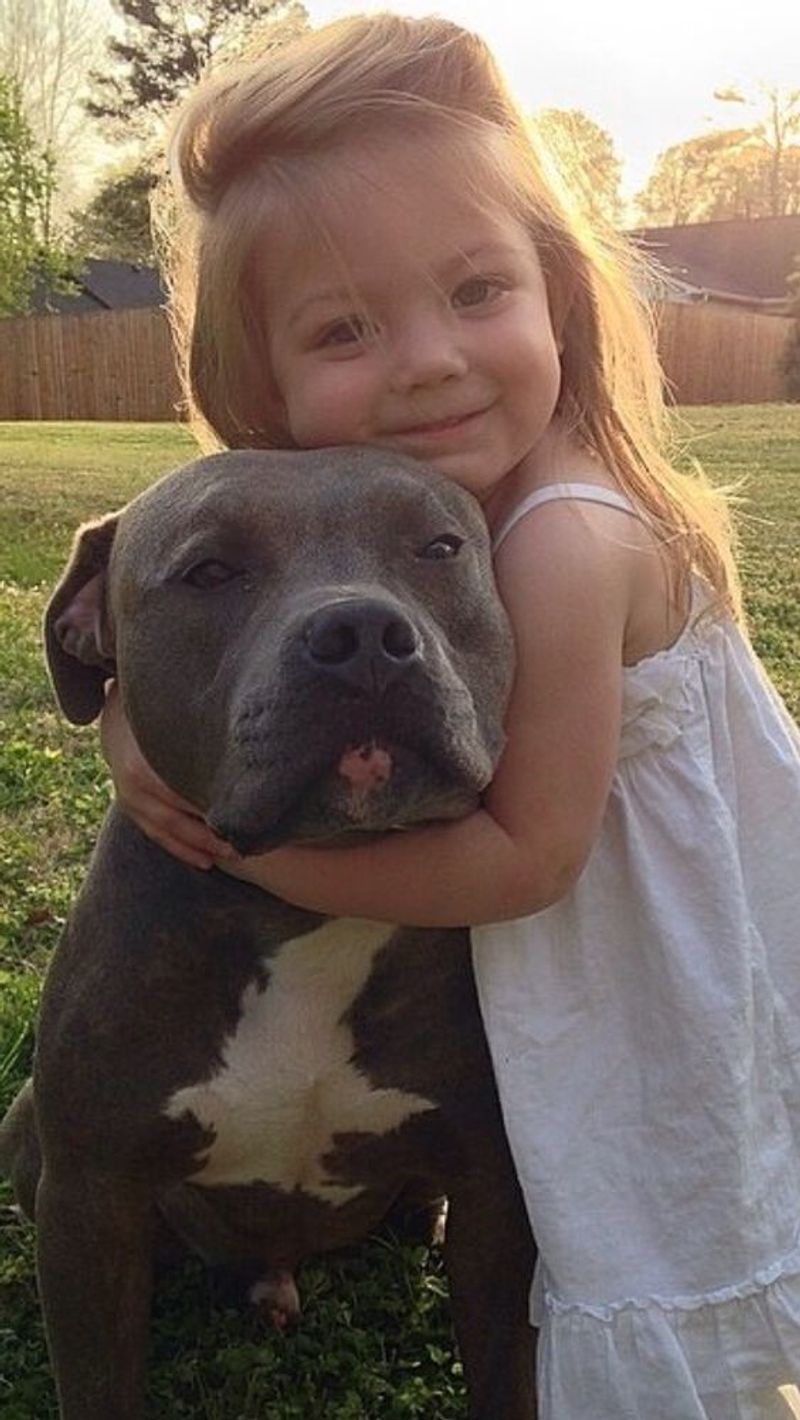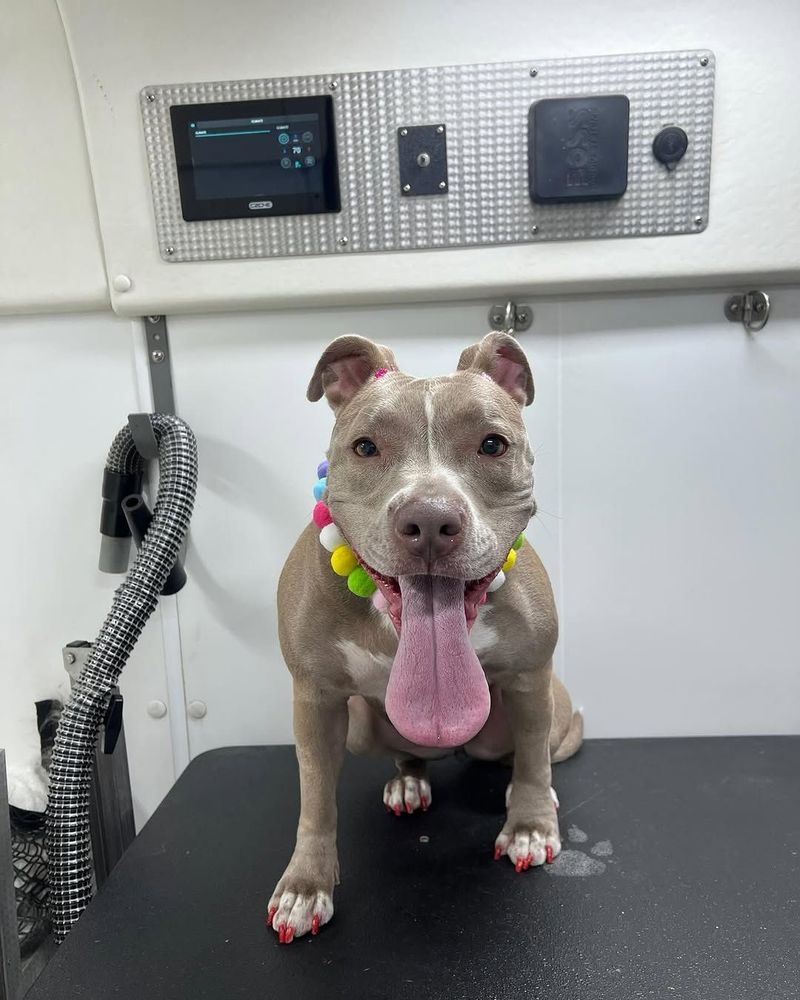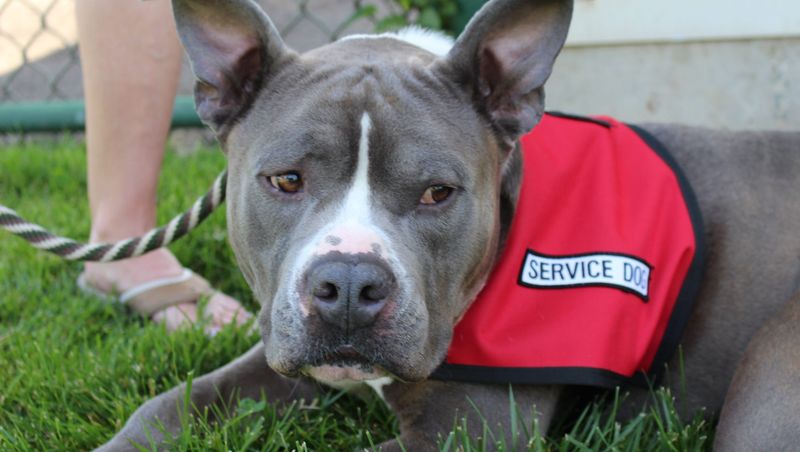Pit Bulls, a group of dogs often misunderstood, are at the center of many myths that paint them unfairly in a negative light. In reality, these loyal companions have much to offer beyond the stereotypes. This article aims to debunk 15 common myths about Pit Bulls, shedding light on the truth behind these gentle and loving dogs. By examining these myths, we can better appreciate their true nature and celebrate the joy they bring to countless families.
Myth 1: Pit Bulls Have Locking Jaws
Contrary to popular belief, Pit Bulls do not have a unique jaw structure that allows them to lock their jaws. This myth has perpetuated fear, but it’s purely fiction. Their jaw anatomy is no different from other breeds.
Pit Bulls can certainly hold onto things with determination, but this behavior is more about personality than physical ability. Enthusiastic about play, they love tug-of-war games.
Understanding this dispels unnecessary fear, encouraging people to see them for the playful companions they are. Remember, a dog’s behavior is shaped more by training and environment than innate physical traits.
Myth 2: All Pit Bulls Are Aggressive
The idea that all Pit Bulls are aggressive is a misconception fueled by media hype. In reality, aggression is not inherent to the breed but rather a result of mistreatment or improper training.
These dogs thrive on social interaction and form strong bonds with their families. Their protective nature can sometimes be misinterpreted but is generally coupled with a gentle demeanor.
When raised in a loving environment, Pit Bulls are known for their loyalty and affection. It’s essential to separate individual behavior from breed-wide assumptions to understand these dogs fully.
Myth 3: Pit Bulls Are Not Good Family Dogs
Pit Bulls have a reputation for being unsuitable family dogs, but this couldn’t be further from the truth. Known for their affectionate nature, they often form deep bonds with family members.
They are particularly good with children, often acting as gentle playmates and protectors. Their loyal and loving nature makes them wonderful companions for families.
While any dog requires proper training and socialization, Pit Bulls can fit perfectly into family life, challenging the myth that they are inherently problematic pets.
Myth 4: Pit Bulls Can’t Be Trained
Some claim that Pit Bulls are untrainable, but they’re actually highly intelligent and eager to please. With the right guidance, they excel in training environments.
Their intelligence allows them to learn commands quickly, making them a favorite in many dog sports and activities. Training with positive reinforcement fosters their natural willingness to learn.
The belief that Pit Bulls can’t be trained ignores their potential and does them a disservice. Embracing their capabilities highlights how adaptable and responsive they truly are.
Myth 5: Pit Bulls Were Bred for Fighting
While Pit Bulls were once used in fighting, their history is more nuanced. They were initially bred for herding and working on farms, showcasing their versatility and strength.
Over time, some were unfortunately exploited for fighting, but this doesn’t define the breed. Their history as loyal work companions is a testament to their adaptability and intelligence.
Recognizing this broader context helps dispel the myth that they were solely bred for aggression. They possess traits that make them exceptional companions beyond the fighting stereotype.
Myth 6: Pit Bulls Are Unpredictable
The stereotype that Pit Bulls are unpredictable is misleading. Like any breed, behavior is influenced by upbringing and environment rather than inherent unpredictability.
Pit Bulls are known for their stability and loyalty when raised in positive surroundings. Their temperament reflects the care and attention they receive from their owners.
This myth perpetuates fear and misunderstanding. By focusing on individual experiences and proper training, we see that Pit Bulls are as predictable as any other breed, grounded in their nurturing environment.
Myth 7: Pit Bulls Are Not Good with Other Pets
The myth that Pit Bulls can’t coexist with other pets often arises from misunderstanding their social nature. With the right introductions and socialization, they thrive in multi-pet households.
Pit Bulls enjoy companionship and are known to form strong bonds with other animals, including cats and other dogs. This sociability is a facet of their affectionate personality.
Debunking this myth involves understanding their need for companionship and their ability to live harmoniously with others when properly socialized and trained.
Myth 8: Pit Bulls Are Not Good for First-Time Owners
Many believe Pit Bulls are unsuitable for first-time owners due to misconceptions about their behavior. However, with proper training, they can be excellent companions for new pet parents.
Their eagerness to please and adaptability make them responsive to positive training methods. First-time owners who invest in understanding their needs often find them to be loving and loyal companions.
Like any breed, success depends on commitment and the desire to learn about the breed’s unique characteristics. Pit Bulls can thrive with novice owners when given the right guidance.
Myth 9: Pit Bulls Are Only Suitable for Experienced Handlers
While experienced handlers may excel with Pit Bulls, they are not the only ones who can successfully care for them. These dogs respond well to training when provided with patience and consistency.
Their intelligence and eagerness to learn mean they can adapt to various owners’ abilities. They are not reserved for seasoned dog enthusiasts but welcome anyone willing to understand them.
Debunking this myth involves recognizing their versatility and the potential for them to thrive under different care levels, not just with expert handlers.
Myth 10: Pit Bulls Are Always Dangerous
The misconception that Pit Bulls pose an inherent danger is largely unfounded. When raised in loving homes, they exhibit friendly and affectionate behaviors.
Much like any breed, their demeanor reflects the care and environment provided by their owners. Many families attest to their gentle nature and loyalty.
Challenging this myth involves focusing on responsible ownership and recognizing that danger isn’t an inherent breed trait. Pit Bulls, like all dogs, require guidance to realize their full potential as loving companions.
Myth 11: Pit Bulls Are Not Good Therapy Dogs
Despite myths surrounding their temperament, Pit Bulls have proven to be effective therapy dogs. Their empathetic nature and ability to connect with people make them ideal for therapeutic roles.
They excel in comforting those in hospitals and care facilities, demonstrating their ability to provide emotional support. Their calm demeanor helps soothe and heal.
Dispelling this myth means acknowledging their potential to impact lives positively and contribute to well-being through their presence and affection.
Myth 12: Pit Bulls Can’t Live in Apartments
The belief that Pit Bulls can’t thrive in apartments is a myth based on misconceptions about their energy levels. In reality, they adapt well to various living situations.
Regular exercise and mental stimulation are key to their happiness, regardless of space. Their contentment is more tied to interaction with their owners than their physical environment.
Recognizing their adaptability and the importance of their bond with human companions helps dispel the myth of space-related limitations in apartment living.
Myth 13: Pit Bulls Are Hard to Groom
Maintaining a Pit Bull’s coat is often simpler than assumed. Their short hair requires minimal grooming, shattering the myth that they are high-maintenance.
Regular brushing helps manage shedding and keeps their coat shiny. Their grooming needs are no more demanding than those of other short-haired breeds.
Understanding their grooming routine reveals how low-maintenance they truly are, allowing owners to enjoy their company without added stress.
Myth 14: Pit Bulls Can’t Be Service Dogs
The stereotype that Pit Bulls can’t be service dogs limits our understanding of their capabilities. With proper training, they excel in various service roles.
Known for their intelligence and determination, they assist individuals with disabilities, providing essential support. Their adaptability allows them to meet diverse needs and challenges.
Emphasizing their potential as service animals highlights their ability to enrich lives, dismantling the misconception that they lack the needed traits for such roles.
Myth 15: Pit Bulls Can’t Be Trusted
The notion that Pit Bulls can’t be trusted is unfair and overlooks their loyal nature. Trust is built on mutual respect and understanding, not breed-specific characteristics.
Pit Bulls often form strong bonds with their families, displaying unwavering loyalty. Trustworthiness stems from the relationship cultivated between them and their owners.
Dispelling this myth requires recognizing the individual dog’s personality and the positive influence of a supportive environment. Their loyal nature can be a source of security and comfort.
